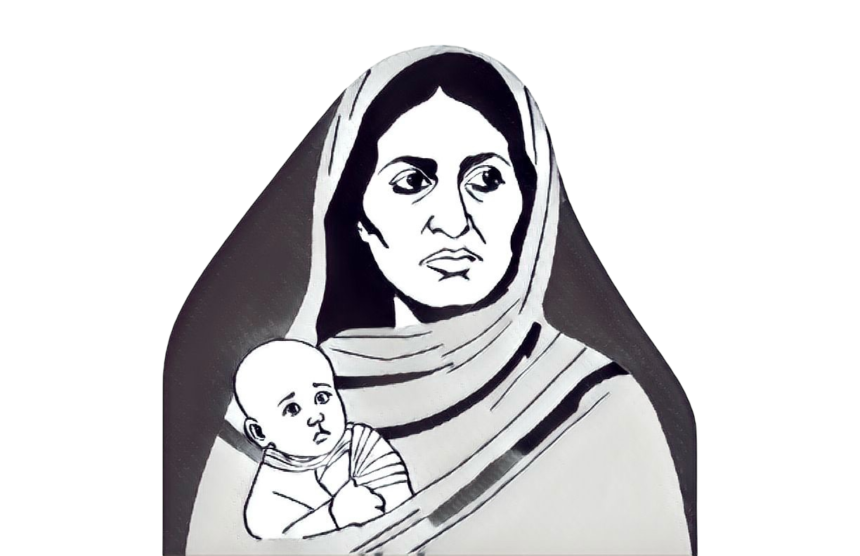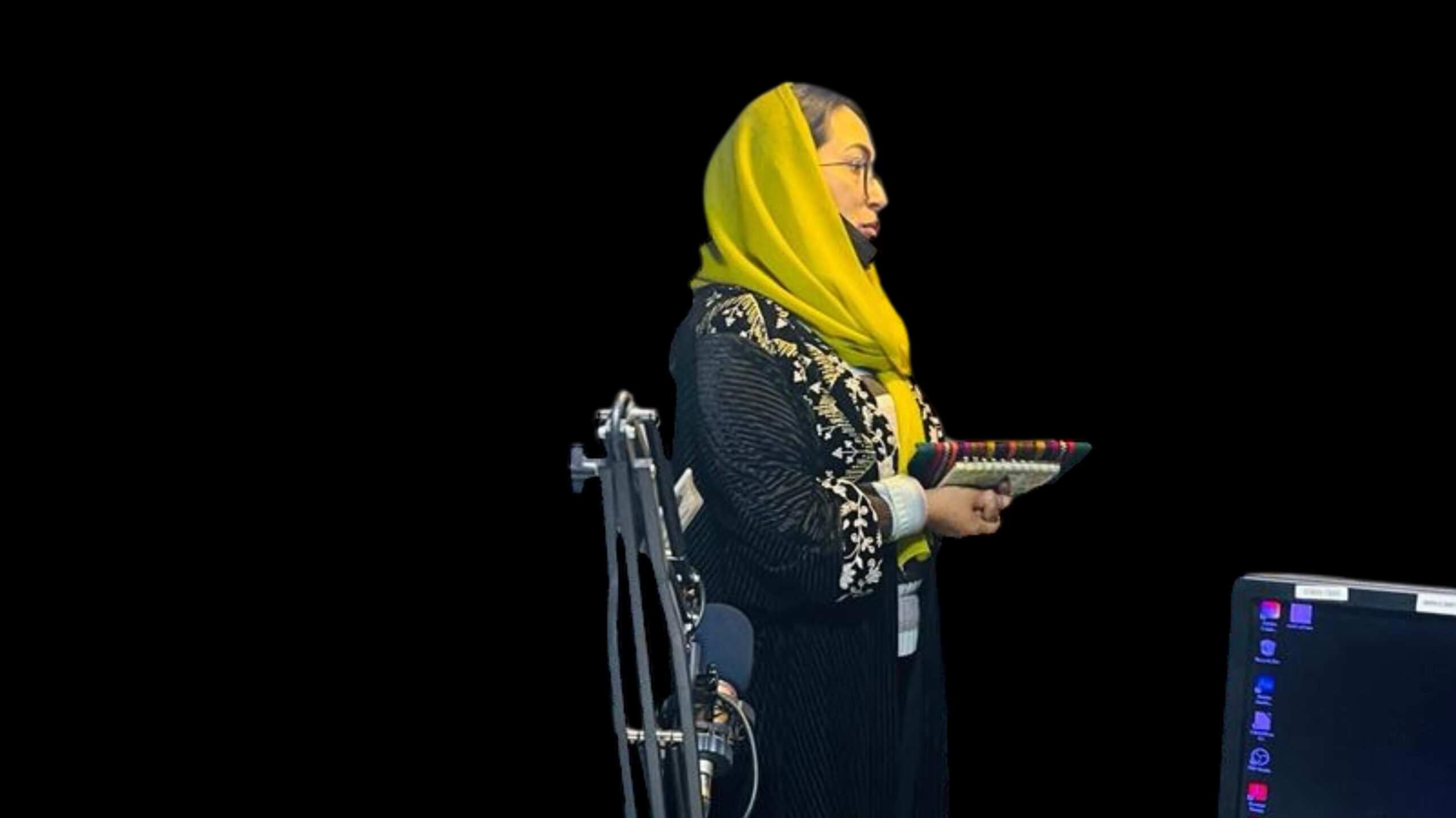It is a cold December day in Kabul, the biting wind swirling through crowded streets where men clad in thick coats shuffle past shuttered shops and muted markets. Hidden behind a nondescript door in a cramped apartment, Aisha* sits quietly, holding her three-month-old daughter. Her eyes reflect a deep pain—one that speaks of a stolen past and a future shaped by oppression.
Once a rising star in Afghanistan’s fledgling women’s sports scene, Aisha’s life took a tragic turn when the Taliban regained control of the country in August 2021. At 23, she has gone from sprinting toward national glory to living in the shadows, restricted by a regime that has stripped her of her rights, her dreams, and her freedom.
In 2021, Aisha was banned from competing in sports—a policy implemented as part of the Taliban’s strict interpretation of Sharia law. In 2023, she was forced into marriage with a Taliban soldier. Now, as she cradles her infant daughter, Aisha has embarked on a new struggle: fighting to secure a future for her child in a society that denies women basic rights.
This is the story of a woman’s quiet resistance in the face of systemic oppression, and her fight for hope in a country where women’s voices have been silenced.
Before the Taliban’s return, Aisha was one of Afghanistan’s most promising athletes. Hailing from a middle-class family in Herat province, she discovered her love for running at the age of 14.
Her talent was undeniable. By 18, she was competing in regional tournaments, breaking records, and inspiring young Afghan women to pursue their ambitions, despite societal challenges.
“I felt alive when I ran,” Aisha recalls.
“Every step on the track was a step toward freedom—not just for me, but for every girl watching.”
Aisha
Her success was not without obstacles. Even before 2021, conservative elements in her community criticized her for participating in sports, calling it “shameful” and “un-Islamic.” Her family shielded her from much of the backlash, allowing her to continue training and competing.
But in August 2021, the Taliban seized control of Afghanistan. Overnight, women’s sports were banned under a decree that deemed women’s physical activity inappropriate and incompatible with their interpretation of Islamic values. Stadiums emptied, teams disbanded, and athletes like Aisha disappeared from public life.
The Taliban’s decree against women’s sports was swift and absolute. Officials declared that women’s participation in sports exposed their bodies and was therefore immoral. Female athletes were warned to stay home or face severe consequences.
For Aisha, the ban was devastating. “It felt like they had taken away not just my sport but my very existence,” she says.
The Taliban’s broader restrictions on women further eroded her sense of agency. Girls were banned from attending school beyond the sixth grade. Women were barred from most workplaces, forced to wear burqas in public, and prohibited from traveling without a male guardian.
Most recently, the Taliban banned women’s voices and closed midwifery training centers.
“It wasn’t just about controlling our actions,” Aisha explains.
“It was about erasing us completely from society.”
Aisha
For months, Aisha stayed home, fearing the repercussions of leaving the house without a valid reason. Her once-strong body grew frail, her spirit weighed down by the suffocating reality of her new life.
Then, in early 2023, her family received a visit from a local Taliban commander. The proposal he brought was, in truth, an ultimatum: Aisha was to marry a Taliban soldier stationed in their district.
Like thousands of Afghan women under Taliban rule, Aisha had no choice but to comply. Refusing the marriage would have endangered not only her but her entire family.
The man she married was a 38-year-old Taliban soldier, a strict enforcer of the group’s laws. They met for the first time on their wedding day.
“I felt like a prisoner being handed over to another jailer,”
Aisha says quietly
Her new life was one of submission and silence. Her husband, deeply loyal to the Taliban’s ideology, forbade her from leaving the house, even to visit her family. He dismissed her past as an athlete as “disgraceful” and ordered her never to speak of it again.
In September 2024, Aisha gave birth to her daughter, an event that reignited her resolve. However, her husband and his family were anything but supportive. Expecting a son to carry on his legacy, her husband expressed anger and disappointment upon learning the baby was a girl.
“He didn’t even look at her,” Aisha says.
“To them, a daughter was a burden, not a blessing.”
she added
Their cold rejection only strengthened Aisha’s bond with her child. “When I held her for the first time, I knew I couldn’t let her grow up in the same chains,” she says.
Under the Taliban’s severe restrictions on women, Aisha has begun resisting in small but meaningful ways. She dreams of a life where her daughter can have opportunities denied to her.
Though her daughter is too young to understand, Aisha whispers stories of strength and perseverance to her. These moments serve as reminders to Aisha of what she is fighting for.
Her resistance, though quiet, carries immense risks. Women who defy the Taliban’s rules face severe punishments, including imprisonment, public lashings, or worse. Yet Aisha is determined.
“I lost my freedom, but I will not let them take hers,”
she says
Through encrypted messaging apps, Aisha has reconnected with former teammates and other women in similar situations. Together, they are documenting the stories of Afghan women athletes who have been silenced, hoping to one day share their voices with the world.
Since 2021, Afghanistan has become one of the most repressive countries in the world for women, according to human rights organizations.
The Taliban’s restrictions on education, employment, and mobility have left millions of women and girls without access to basic rights. Female activists, journalists, and educators have been silenced, and public life has become a space exclusively for men.
International condemnation of these policies has been widespread, but efforts to hold the Taliban accountable have been largely ineffective. Sanctions, diplomatic isolation, and limited humanitarian aid have failed to alleviate the suffering of Afghan women.
In the absence of external support, Afghan women like Aisha are finding ways to resist from within, quietly pushing back against the regime that seeks to erase them.
Despite the Taliban’s restrictions on women, Aisha remains hopeful. She dreams of a day when her daughter can run freely in the streets, unburdened by the barriers that have defined her mother’s life.
“I don’t know if I will ever see that day,” she admits. “But I have to believe it’s possible—for her, for all of us.”
For now, Aisha’s resistance is quiet but powerful. Every whispered conversation with other women, every shared story, and every hidden act of defiance is a step toward reclaiming the freedom stolen from her.
Aisha’s journey is far from over. As she navigates the challenges of motherhood, marriage, and resistance, she remains determined to fight for a better future—not just for her daughter, but for all Afghan women.
Her story is a call to action for the global community, a plea for solidarity in the face of systemic oppression.
As Aisha’s daughter stirs in her arms, she whispers a promise:
“You will not grow up in silence. You will run.”
Aisha
And so, the fight continues.
*Name changed to protect her identity.












